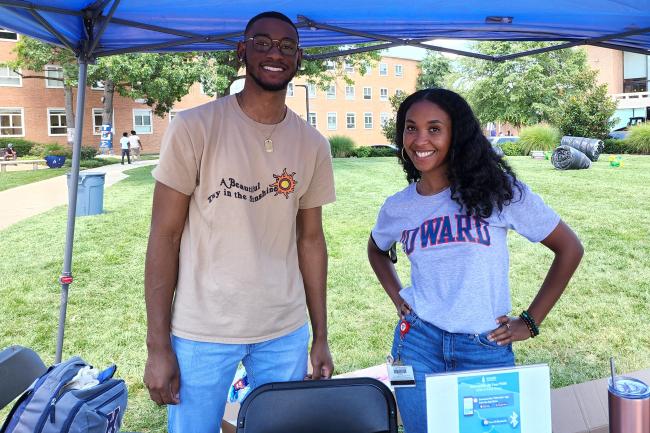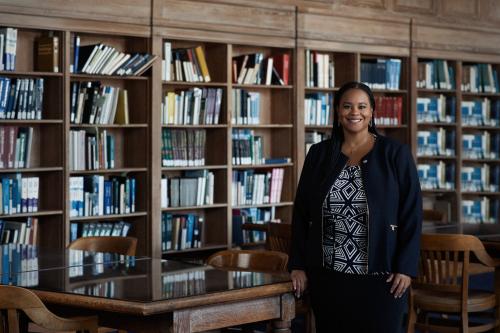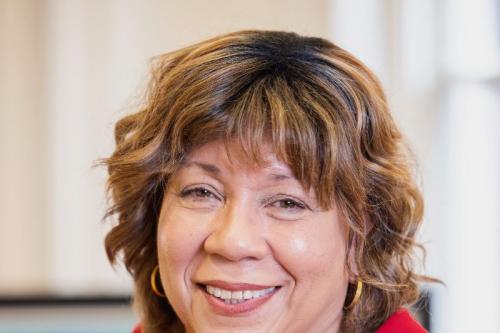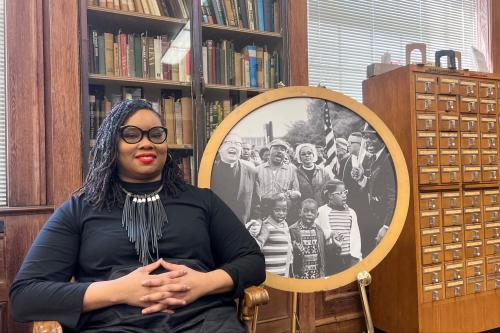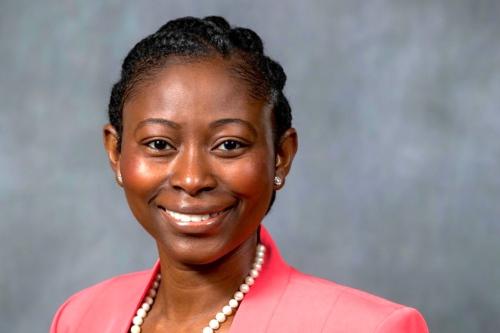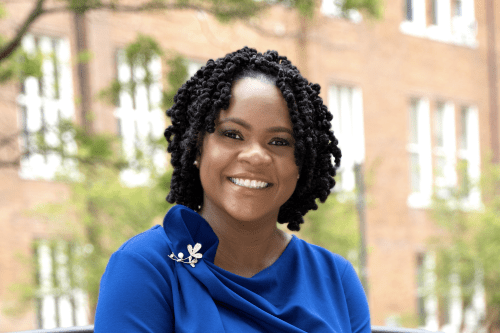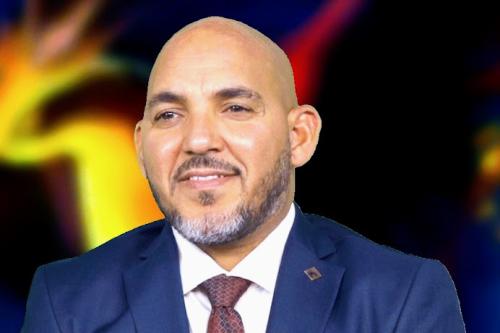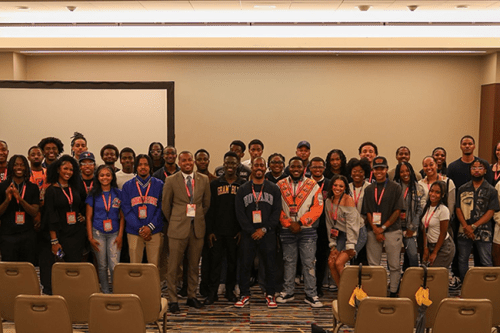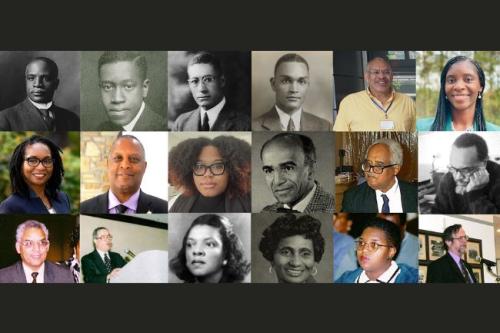Resonating with Howard’s Campus Culture
Marcus Lyles is the chief of the Department of Public Safety. He says the strategy to maintain Howard’s public safety is beyond “X’s and O’s,” citing community trust and embracing authentic care and leadership as the department’s larger themes. Lyles refers to the cultural belief that Black women are the backbone of their respective communities to connect with campus.
“I knew I needed to have personnel that understood our student base, which is 70, nearly 80% female,” Lyles says. “When I arrived here, I looked at my team, sat down with each person and realized I needed to bring individuals that gave different perspective...from the female point of view. I think I’ve seen additional empathy and sympathy.”
Members of the Department of Public Safety’s team – a community representation of mother figures, sisters, and aunties alike – helps vitalize the relationship between the department and the student body at The Mecca.
One goal of the Department of Public Safety is translating the languages of law for cultural comprehension. One thing Lyles acknowledges is if the judicial and safety protocol language doesn’t translate, it won’t stick with the Bison student body.
As a public safety unit at an HBCU, students must “see themselves” as the first steps of trust and safety, says Ariel Triplett, director of the emergency management of the university. Representation is key: with the population of Howard’s student body nearly 75% women, there is a goal to connect with students and build bridges that acknowledge the undertones of racism and misogynoir within America’s policing and punitive systems.
“Trust is hard,” Triplett says. “What’s deeply rooted in how Black people work with legal regulations, government, whatever you want to name it, is racism. It would be different if I didn’t look like our community. But because I’m from the culture, I’ve lived in my own community, I think it starts with trust.”
Defining Safety for the Female Bison Student Body
Triplett cites her womanhood as one of the determining factors to how the Department of Public Safety resonates with students, especially as a Howard alumna herself. “I also see from the lens of when I was here,” says Triplett, a 2002 biology graduate. “I also pull that in so that personal touch is a lot easier. I like that I can bring a different level of perspective. There’s the traditional ways of going about things, but I think there’s a level of creativity that woman can bring in and really present.”
The Department of Safety looks to conjoin lived experience and meeting student needs in their approach, and in doing so, hopes to prevent tragedies on Howard’s campuses. Adams cited her personal experiences with violence. During her Florida adolescence, her mother was murdered when she was just seven years old, her own motivating force in ensuring student safety, and particularly women.
“Just from my personal experience I can see how devastating it is when women are [harmed],” Adams says. “If I take my child to Howard University, I want my child to be safe. And if there’s something happening on that campus, I want to make sure I’m aware of it...so we’re going to do everything we can to make sure when we do have incidents, that everybody community-wide knows what’s happening and can take necessary precautions.”
Communicating on-campus crimes is part of Adams’ role, citing the theme of cultural communications as an integral component of doing work that the Howard community can trust.
“It was maybe my first or second week on campus, and [Department of Public Safety] would have these weekly meetings with students, faculty and staff, an open forum to express yourself and address whatever concerns you have here on campus,” Adams says. “You have to listen to our stakeholders, which are our students...maybe we need to go back to the drawing board and figure out how we can improve in whatever area it may be, whether it’s communication or interactions.”
At an HBCU predominately populated by Black women, the Department of Public Safety ensures that voices are heard by providing both excellence in service and representation in the woman they select to serve. From addressing serious bomb threats to ensuring adequate clean environments throughout the University, the women of the Department of Public Safety are leading the charge in making The Mecca as safe as possible.


